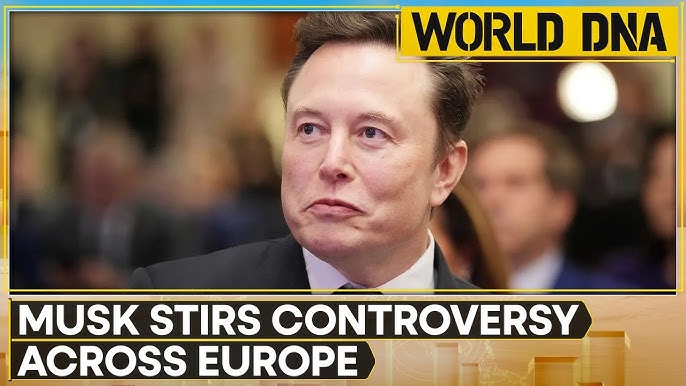In Europe, the allure of Elon Musk and his Tesla vehicles appears to be fading. Notably, some high-profile Tesla owners and enthusiasts are trading in their Teslas for different electric vehicle (EV) brands. Among them is Jon Gibbs from Birmingham, England, who operates a popular Tesla inventory webpage, Tesla-info, believed to house the world’s foremost database of new and used Tesla vehicles. Despite his involvement with Tesla, Gibbs has recently switched to driving a BMW iX electric SUV.
In a similar vein, an entrepreneurial individual from the Netherlands, who established a Netherland-based all-things-Tesla website, has traded in his Model Y for a Polestar. The commonalities between the British and Dutch businessman don’t end there; both have cited Musk’s alleged endorsement of far-right political groups in Europe as the reason for their transition away from Tesla.
The brand’s popularity seems to be dwindling in Europe, with sales numbers rapidly declining. In Norway, a country where EVs surpassed traditional combustion-engine vehicles in market share back in 2024, Tesla saw a sharp decrease of 37.9 percent in sales last month. There have been similar trends in other European countries, such as France and Spain, where Tesla sales experienced a decline of 63.4 percent and a notable 75.4 percent respectively.
Both aforementioned entrepreneurs, from the UK and the Netherlands, have backgrounds in online marketing. Initiated in 2020, they developed their websites and enhanced them over the years. Despite their history of owning multiple Tesla vehicles and plans to upgrade their cars this year, they’ve chosen to distance themselves from Musk’s controversial political affiliations. Even though the shift away from Tesla resulted in significant personal expense, they deemed this necessary to disassociate from Musk’s perceived values.
The discontent with Tesla in Europe is growing. Some Tesla owners are displaying their disillusionment visibly, favoring bumper stickers that read ‘I Bought This Before We Knew Elon Was Crazy’. Instances of vandalism against Tesla properties and vehicles have been reported, including a Tesla showroom in The Hague that was defaced in early February.
In Germany, Musk’s purported support of the far-right political party, Alternative for Germany (AfD), has sparked widespread controversy. A number of companies have chosen to sever links with Tesla in response. For example, German energy company LichtBlick has publicly announced its decision to disengage from Tesla.
Tesla’s competitors appear to benefit from its decline. For instance, Polestar’s CEO in Germany reported a surge in clients reaching out and making the switch to their vehicles. Various factors may be contributing to Tesla’s topple in popularity within Europe, from a lack of fresh vehicle models to high expenses.
Data from the industry body ACEA reveals that Tesla sales underwent a decline of 13 percent across the European Union in 2024. In some crucial markets, the decline is even steeper. This downward trend shows no signs of abating, suggesting a concerning future for Tesla within Europe.
German Federal Motor Transport Authority data shows a dramatic year-on-year drop in Tesla registrations in Germany. Only 1,277 new Teslas were registered in the country in January, a fall of 59.5 percent. Efforts to contact Tesla for comments on these issues have so far been unfruitful, leaving many questions unanswered.
The future of Tesla sales in Europe appears fraught with challenges. Recent surveys suggest a substantial number of Tesla owners are contemplating selling their vehicles, or have already done so. A percentage of owners are expressing embarrassment over their association with Tesla, a sentiment no car company would aspire to evoke.
These figures paint a gloomy picture of Tesla’s standing in Europe, underlining a trend of decreasing popularity. Given the current scenario, major strategic changes may be required for the company to regain the trust and support of its European customers.
The shift away from Tesla isn’t limited to customers; even those operating platforms dedicated to the automaker are expressing their dissatisfaction. The current mood among European Tesla owners suggests a need for urgent action from the company to address these concerns.
Overall, Tesla’s future in the European market is shrouded in uncertainty. As more and more owners express discomfort with their associations with Tesla, and sales continue to plummet, an image revamp or significant operational shift may prove vital for Tesla’s survival.


